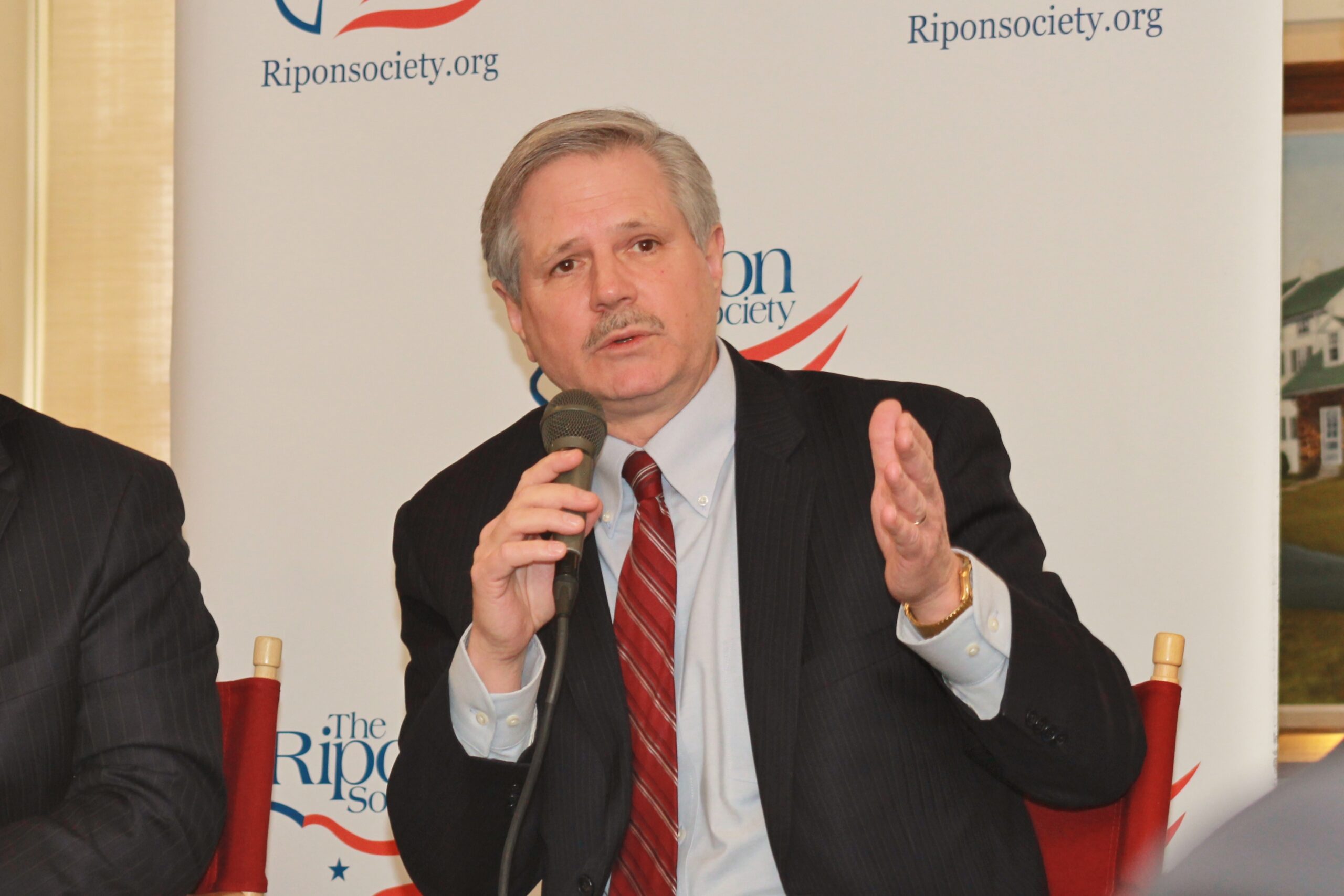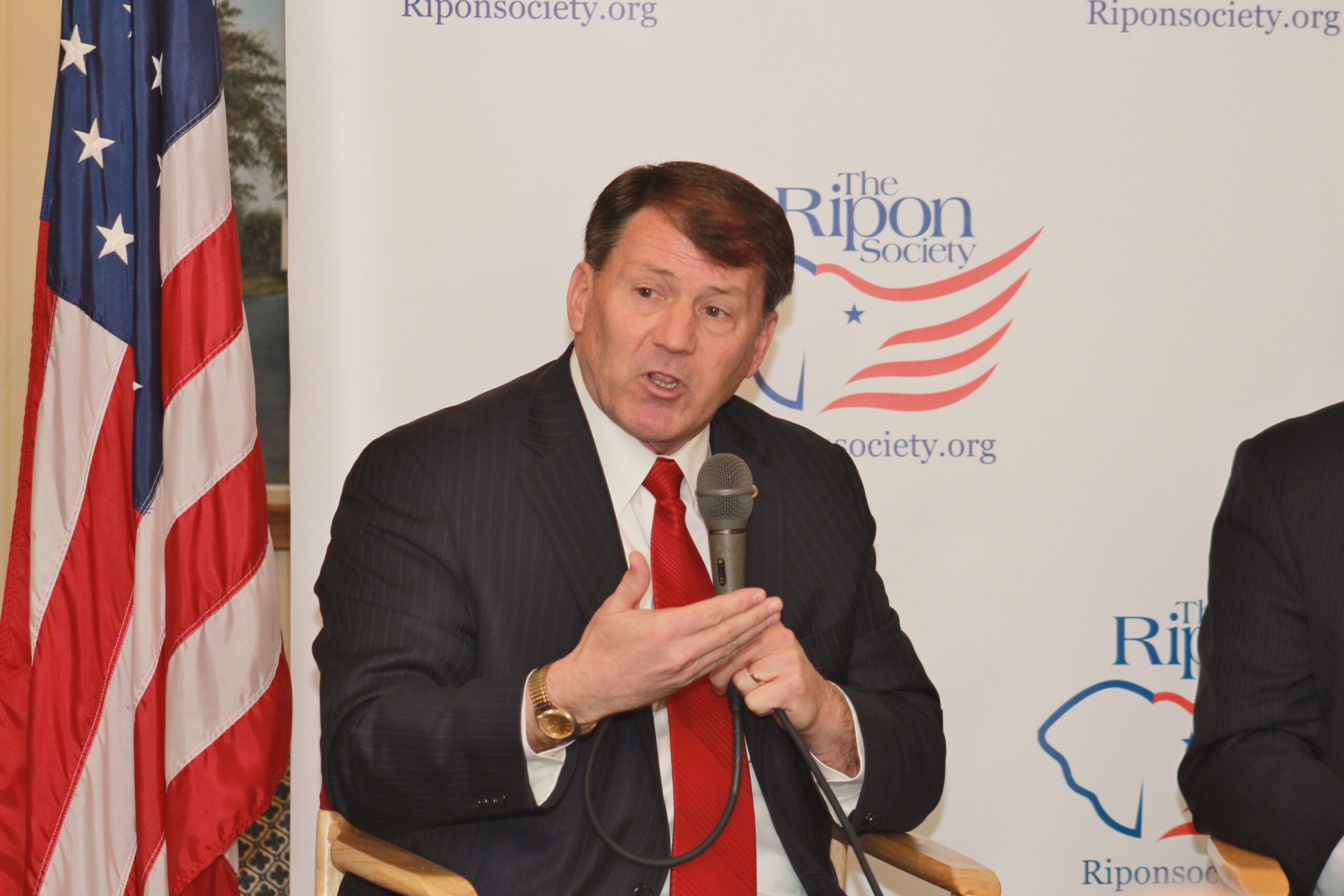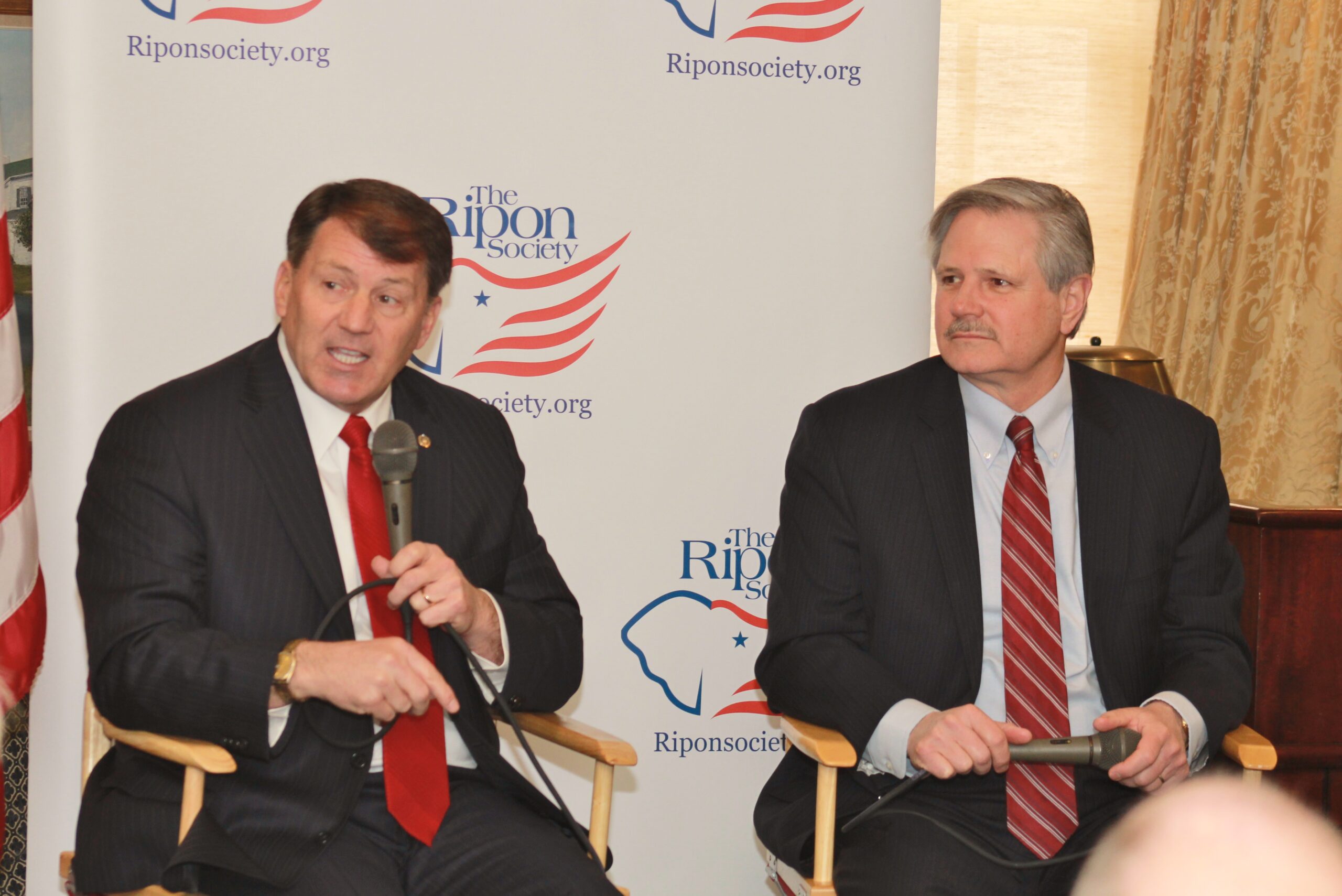Hoeven & Rounds Say Washington Needs to Return to Fundamental Principles to Get America Back on Track
WASHINGTON, DC – U.S. Senators John Hoeven (R-ND) and Mike Rounds (R-SD) appeared before a luncheon meeting of The Ripon Society yesterday afternoon, delivering remarks in which they not only talked about their experiences as the Governors of their respective home states, but said that Washington needs to return to the fundamental principles of less spending, lower taxes, and fewer regulations to get America back on track.
“I think we have to get back to the fundamentals,” Hoeven stated in remarks to open the discussion. “That’s what I tried to do as Governor of North Dakota, and I think that’s what Mike tried to do as well. By the fundamentals, I mean we have to reduce the regulatory burden. We have to reform the tax code – make it simpler and fairer, and make sure revenue comes from economic growth and not higher taxes. We have to implement a territorial system so that we get revenues that are overseas to come back. We have to do more to address our debt and deficit, and balance the budget. And we need to strongly support our military. Americans need to feel safer at home and abroad.
“That’s what I mean by the fundamentals. That’s also what we’re trying to do in the Senate, and why it’s so important that we keep a Republican Senate, a Republican House, and that we have a Republican President who will work with us to do those things. It’s about empowering people – entrepreneurs and small businesses across the country – to do the things that have made America the greatest economic powerhouse in the history of the world. Everybody came to America to do business, but we’ve made it so hard to do business that we can’t get our economy growing. There isn’t one sector of the economy where representatives don’t come in and see me or see Mike and say, ‘Man, this regulatory burden is just crushing us.’ That’s what it’s really all about.”

Hoeven was elected to the Senate in 2010 after serving a decade as the 31st Governor of North Dakota. Prior to his election as Governor, he spent seven years as the president of the nation’s only state-owned bank, the Bank of North Dakota. In his remarks, he talked about his experience as a businessman and how it continues to shape his approach to governance today.
“I think if you go back and look at my track record in North Dakota and you look at Mike’s track record in South Dakota, you’ll see that’s really what we did. I had never been in office before getting elected Governor of North Dakota. I was a businessman then, and I still am. And I think what I bring is that business focus and a basic belief that if we can grow the economy and create more jobs, then a rising tide that will lift all boats. People will be working. Instead of losing population, we will be gaining population. People will have a higher standard of living. They will have opportunity. And we’d not only be able to lower taxes because of our growing economy and bigger revenue base, but we’d still have the revenues to put into the things people want, like infrastructure and education and health care. That’s the approach we have to take, and that’s the approach we’re trying to take. It may not be as exciting as some other things that people like to talk about on the stump, but I think it’s what works.”
Rounds agreed.
“Working as a Governor truly is the greatest job in the world,” he said, “because you can walk in, you can look at something, you can put together the plan, and you can get things done. It’s different than working as a United States Senator, because the Founding Fathers clearly did not want us to get a lot of things done. They wanted us to slow things down, and the system is built that way. But they made a mistake. They assumed that Congress would always retain and respect its own Constitutional responsibility to rein in the Executive branch. We’ve failed.
“If you take a look at the regulatory burden that has been placed on the American public, if you take a look right now at what’s going on in election year politics, people are mad. And they’re mad at Washington, D.C., because they see Washington, D.C. as imposing its will on the American people. Take a look at the regulatory environment. We live under one million federal regulations today. And they’re creating more at the rate of 3,400-3,500 more per year. Most egregious is the EPA. Think about what they’ve done – the EPA alone. The cost of complying with EPA regulations averages, over the last 10 years, $42 billion a year. The total cost of regulatory compliance in the United States today? To put it into perspective, you know how much you pay in personal income taxes? You pay $1.4 trillion in personal income taxes. By contrast, the cost of complying with federal regulations today in America is over $1.9 trillion. That’s not sustainable.”

Rounds was elected to the Senate in November of 2014 after serving eight years as the 31st Governor of South Dakota. He previously was a member of the State Senate, where he served as Majority Leader for six years. Like Hoeven, he also has extensive experience in the private sector, where he learned not only about the burden that government can place on business, but why our country, like any good business, must begin planning for the future today.
“Think about what our country should look like in the year 2026,” the South Dakota lawmaker stated. “Let’s put together some goals. Let’s act like a business for just a second. What if by the year 2026 we have an agreement that, number one, we’re going to have our tax code reformed and operating so, rather than running businesses out of the country, we’re bringing businesses into the country. Number two, let’s take hold of the regulatory mess we’ve got in this country and reform it. Let’s put in a rules review process like 41 states have successfully implemented. And number three – and this is just as important as the other two — let’s take a look at the entitlement programs that we’ve got in place today, not with the intent of stopping them, but of saving them. Let’s save Social Security from itself. Let’s save Medicare from itself. Let’s make them both long-term and sustainable – let’s plan on doing that by the year 2026. Think about what a birthday present that would be for America.”
“According to the CBO’s most recent reports, by the year 2026, 99 percent of all the revenues that are generated at the federal level today will go to two categories — interest on the federal debt, and mandatory payments on entitlements. That leaves nothing earned in terms of taxes collected to pay for defense, education, research, other health care. When we talk about having a crisis, it’s not coming — it is here now. So when we talk about having leadership at the White House level, let’s start talking about who has a vision out there that promotes those goals.
“Do you hear any talk about that right now on the campaign trail? No. What they’re doing right now is not talking about the issues because the American public right now is enamored with other things. At some stage in the game, they’re going to get serious. Our job as leaders should be to get ahead of it and to lead them in the right direction, and to remind them about how critical it is that we see long-term the problems we’re going to face — not just for us, but for the next generation as well.”
To view the remarks of Senators Rounds and Hoeven before The Ripon Society luncheon meeting yesterday afternoon, please click on the link below:
The Ripon Society is a public policy organization that was founded in 1962 and takes its name from the town where the Republican Party was born in 1854 – Ripon, Wisconsin. One of the main goals of The Ripon Society is to promote the ideas and principles that have made America great and contributed to the GOP’s success. These ideas include keeping our nation secure, keeping taxes low and having a federal government that is smaller, smarter and more accountable to the people.




